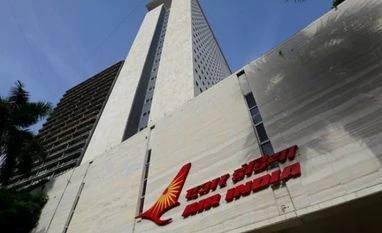After Tata Group and IndiGo, Air India’s privatisation bid has received yet another boost as private equity players KKR and Co and Warbug Pincus have expressed interest in acquiring the national carrier’s businesses, reported
Live Mint. The two buyout firms separately sought details of the proposed privatisation process cleared by the Union Cabinet in June 2017, two people aware of the development said. (
Read more)
“Air India’s businesses make attractive investment opportunity for the PE funds,” a source told the English newspaper, saying the discussions on the divestment are still underway.
The government is expected to take some action on privatising the loss-making state-owned airline Air India in next six months. Prime Minister Narendra Modi last month approved plans or selling part or all of the company, ending decades of state support. (
Read more)
Staying afloat on little over Rs 30,000 crore bailout package extended by the previous UPA regime, Air India is saddled with nearly Rs 50,000 crore debt and is in discussions with lenders on ways to restructure the loans.
InterGlobe Aviation that runs the IndiGo airline and Tata Group that runs Vistara and AirAsia India airlines have earlier expressed an interest. Low-cost carrier IndiGo has a 40 per cent share of the domestic market. (
Read more)
While IndiGo said it is keen on buying Air India’s international arm and low-fare division Air India Express, Tata Group had informally sought details on the privatisation from the government.
Headed by Finance Minister Arun Jaitley, a group of ministers (GOM) held its first meeting on 21 july and held discussions on the sale of assests, a possible demerger and strategic disinvestment of three profit-making subsidiaries.
While both KKR and Warburg declined to comment, sources said the funds were kept on hold until someone is appointed to manage the sale, Live Mint added.
This is the first buyout interest expressed by overseas investors after foreign direct investment rules in aviation allowed 100 per cent stake in local airlines in 2016. However, the investments by foreign airlines were limited to 49 per cent of a domestic airline’s capital.
Air India was bailed out in 2012 with $5.8 billion of federal funding. Previous attempts to sell the state-owned airline have floundered, in part due to a lack of potential buyers.
Once India's biggest airline, Air India's market share in the booming domestic market has slumped whereas those of private carriers such as IndiGo, SpiceJet and Jet Airways expanded.
The privatisation saga
Since the merger of Indian Airlines with itself in 2007, Air India has been in the red. However, it posted an operating profit of Rs 105 crore on account of low fuel prices and increased passenger numbers in 2015-16.
Air India Express, which has been operationally profitable for the last four years, saw its revenue rise to Rs 3,335 crore in 2016-17.
While the exact contours of proposed privatisation could not be immediately ascertained, the possibilities of strategic stake sale as well as outright disinvestments are being considered.
Also, discussions on disinvestment of Air India have gathered momentum at a time when the CBI has registered three FIRs and a preliminary enquiry to go into the controversial decisions made by the erstwhile UPA government with regard to Air India, including surrender of profitable routes to favour private airlines.
Global airlines' bodies had expressed concern over the debt-ridden Air India's disinvestment or privatisation, saying such a move should not "distort" the national carrier's competitiveness or affect its alliance with global players. (
Read more)
The All India Airlines Retired Personnel Association (AIARPA) said private investors are "interested" in AI because it is operationally profitable, has a large fleet of aircraft, a profitable low-cost international carrier like Air India Express, profitable ground handling services, and prime slots at airports around the country and the world, among other factors.
Moreover, a section of Air India approximately 40,000 employees have been staging protests against the government's decision to privatise the national carrier, saying they were always ready for the turnaround of the airline. (
Read more) Fleet expansion plans run into headwinds
The airline has put on hold its fleet strategy based on short-term and long-term priorities, scrapping a proposal to lease eight Boeing 787 wide-body aircraft.
Similarly, the plan to procure ten ATR aircraft by Alliance Air, which has been awarded several routes under the regional connectivity scheme (Ude Desh ka Aam Naagrik) UDAN, have been put on the backburner.
Earlier this month, the airline decided to stop serving non-vegetarian meals in economy class on domestic flights in a bid to save up to 100 million rupees ($1.6 million) over 10 months.
The airline is also working to reduce the time its planes spend on the ground and launching direct flights to new international destinations. (
Read more)
Founded in the 1930s and known to generations of Indians for its Maharajah mascot, Air India has a complex fleet and too many staff relative to rivals.
Air India has about 17 per cent share of traffic on international destinations taking off from India and 13 per cent share of the domestic market.
With inputs from agencies
Unlock 30+ premium stories daily hand-picked by our editors, across devices on browser and app.
Pick your 5 favourite companies, get a daily email with all news updates on them.
Full access to our intuitive epaper - clip, save, share articles from any device; newspaper archives from 2006.
Preferential invites to Business Standard events.
Curated newsletters on markets, personal finance, policy & politics, start-ups, technology, and more.
)